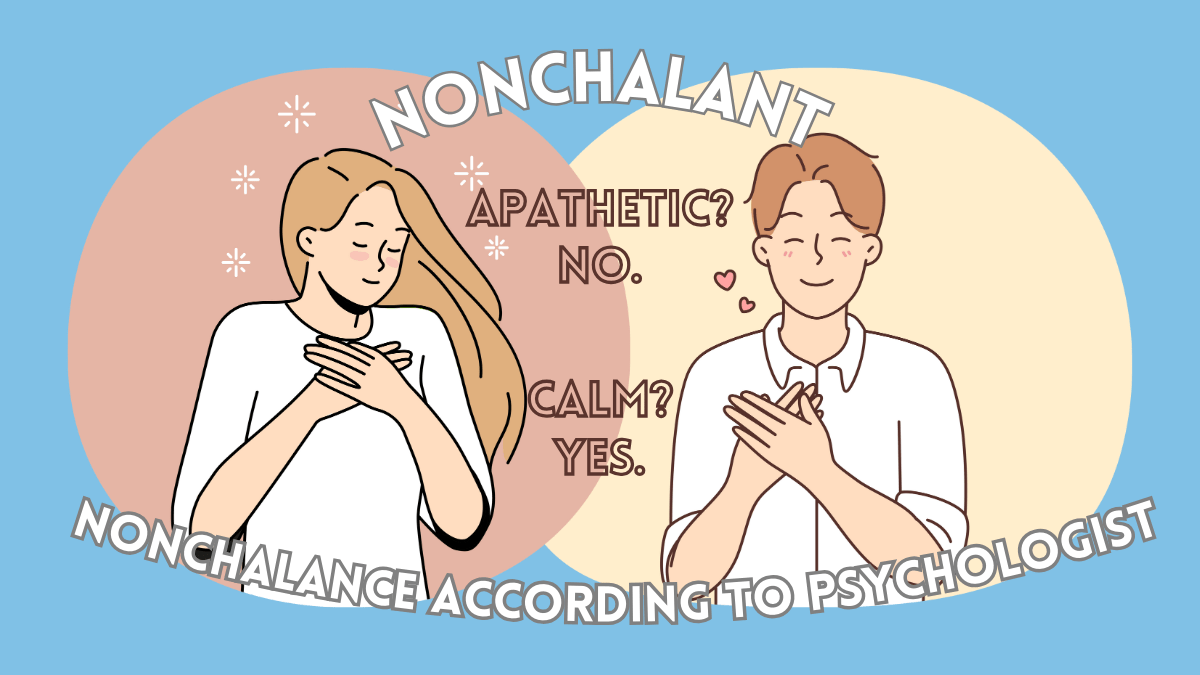True Meaning of ‘Nonchalant’ According to Psychologist

The pairing of ‘si nonchalant’ and ‘si OA’ is a trending topic nowadays. Often used in jest, this phrase humorously depicts any relationship dynamic characterized by one calm individual and one talkative individual. Nevertheless, the widespread use of the ‘nonchalant at si OA’ phrase has led to some individuals misinterpreting the concept of ‘nonchalance’ and misusing it in other contexts.
True Meaning of ‘Nonchalant’ According to Psychologist
This word was used in memes, humorous posts, and even personal anecdotes shared on various social media platforms. As observed, some even use it as an adjective about some people. They vent frustrations about their significant other’s lack of affection towards them.
Furthermore, Filipino psychologist Riyan Portuguez RPsy, RPm, also known as ‘Your Millennial Psychologist‘, has debunked its true meaning. In YMP’s post, she highlighted that nonchalance doesn’t equate to apathy or an individual’s lack of concern.
Don’t confuse nonchalance to totally walang pakialam sa’yo. Ang nonchalant person ay calm and caring.”
Your Millenial Psychologist in a Facebook post
YMP also said that as psychologists and psych majors, they were trained to show nonchalance. This is particularly applicable when engaging with and understanding individuals in the real world. Indeed, this holds true as psychologists should act and listen calmly. This can ensure that they cultivate a safe space for their patients during therapy sessions and provide the necessary help.
Being nonchalant entails remaining calm during moments that might induce strong emotions.
While many dictionaries offer similar definitions of the word, Merriam-Webster defines it as someone who displays indifference. Yet, upon reading, it also presents another meaning: portraying a person who is relaxed but is usually perceived by others as indifferent.
Displaying nonchalance isn’t necessarily a bad thing. These individuals genuinely care for your well-being, while maintaining composure to ensure emotions don’t cloud their judgment and vibe. However, what distinguishes these individuals is their ability to choose which can concern them.
[Nonchalant people] only care about things na talagang nagma-matter sa kanila.” Your Millenial Psychologist further defining nonchalance
However, there are certain individuals who are genuinely apathetic and not merely displaying nonchalance.
These are the people that some vent about, as they fail to display any care or effort in the relationship. Therefore, it’s wise to address this issue to them and see if there’s a possibility of change. Their action to your concerns will show their true feelings towards you—so observe attentively.
Remember that everyone deserves love and appreciation, so you have every right to talk it out with that person. And if you weren’t shown love and appreciation, maybe it’s time to reassess the connection because you don’t need to settle for less just to keep a person.
The truth is, being with a nonchalant person can be calming, as they exhibit composure in every situation. Furthermore, they often serve as a source of comfort, calming you during moments of panic in challenging life situations— one of their positive attributes!
Reflecting on YMP’s insights in her video, being nonchalant isn’t a negative trait. In fact, it’s admirable because it signifies remaining composed while still caring. Hence, we shouldn’t put them in the bad light just because they don’t match our energy. Differing energies can complement each other and build connection. However, if someone shows no care for you, it’s a cause for concern—always remember that you deserve love, appreciation, and care just like they do.
Annefreid often finds herself being lost in the lines of serene melodies of this world. When writing, she usually uses personal anecdotes, and she also likes to write about the things she loves. She also wanted her write-ups to be something people will look for whenever they wanted to know about something, as she's fond of aiding people through her words as a writer. Moreover, she spends her time making music and creatively writing where she can exercise her creativity.





